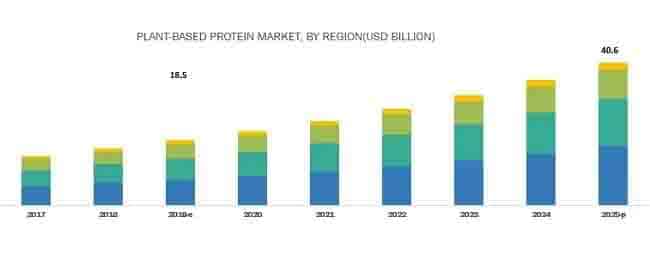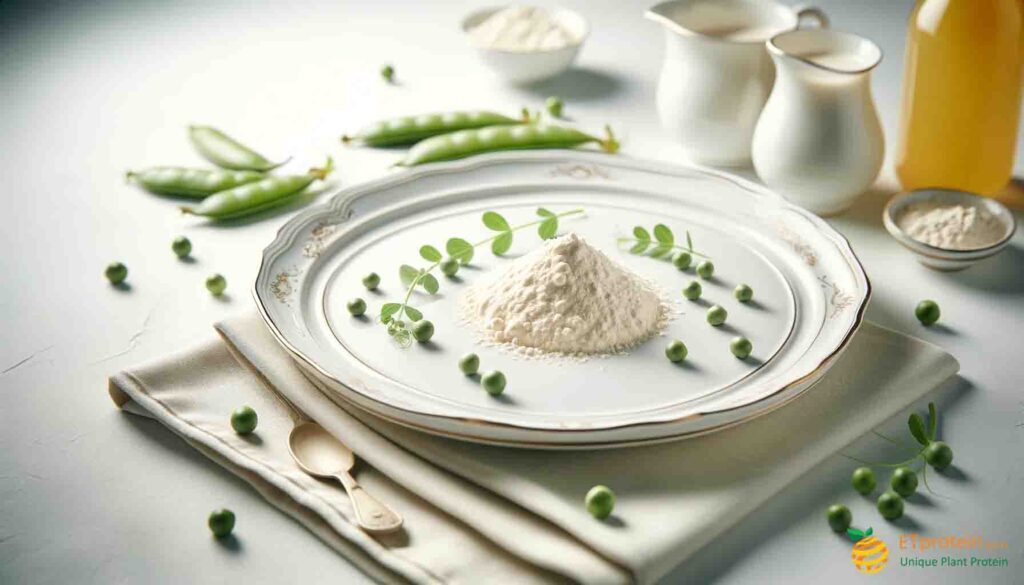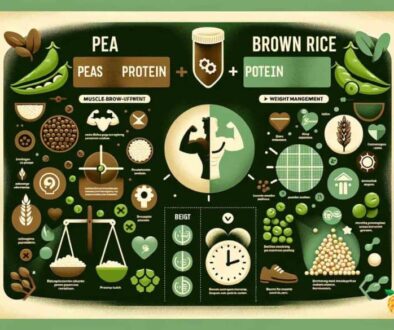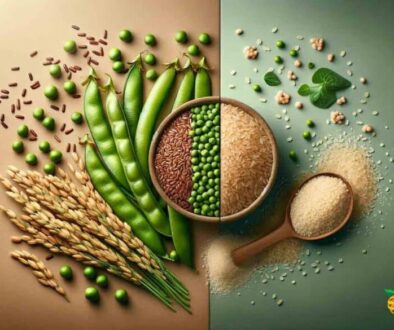Pea Ignites a “Plant” Protein Revolution
Discover the protein revolution with sustainable pea protein. Boost health and sustainability with our high-quality, plant-based pea protein products.
As people increasingly pursue a healthier quality of life, there is a noticeable shift in dietary habits with a growing number of consumers reducing meat consumption and leaning towards a more plant-based, vegan diet. Concurrently, awareness among consumers regarding health, environmental issues, animal welfare, and ethical considerations continues to rise. In addition to obtaining protein from animal-based sources such as meat, milk, and eggs, many consumers are now opting for foods made with alternative proteins like plant proteins.
Pea protein emerges as a significant force
The demand for plant-based proteins in the food and beverage market has been steadily rising for several years. Market data indicates that since 2019, the Compound Annual Growth Rate (CAGR) for the plant protein market has been at a remarkable 14.0%. It is projected that by 2027, 75% of protein demand will be plant-based, indicating a sustained global upward trend in the demand for alternative proteins.

In this evolving consumer landscape, various plant protein alternatives have emerged, finding widespread application in products such as energy bars, milk substitutes, and burgers.
Pea protein is one such alternative. As a novel protein derived from peas, pea protein, as the name suggests, is a high-protein raw material extracted from peas, categorized into pea isolate protein and pea concentrate protein. Pea protein not only meets the human demand for high-quality protein but also boasts environmental sustainability. With its environmentally friendly, non-GMO, zero cholesterol, optimal amino acid profile, and easy digestibility, pea protein has become a focal point in the industry.
According to market research, the global pea protein market is expected to grow at a rate of 13.5% annually by 2023. It is anticipated that by 2025, the global market for pea protein will reach $176 million. In the Chinese market, pea protein’s annual growth rate exceeds 25%, far surpassing the less than 10% growth rate of soy protein. As dietary concepts continue to advance, plant-based foods become more widespread, and research on alternative proteins deepens, coupled with increasing global attention to environmental and sustainable development issues by governments, the demand for pea protein in the market is poised to further increase.
Pea protein leads the new wave of plant-based food and beverage innovation
Pea protein holds immense potential in the world of plant-based proteins. Its exceptional product attributes and nutritional value make it a highly versatile source of protein applicable across various uses.
Currently, major brands are tapping into the potential of pea protein, successfully incorporating it into a variety of products on store shelves, spanning from fast-moving consumer goods to culinary items, and from regular food to functional food. It can be said that virtually no food product is untouched by the use of pea protein, with the production and application of pea protein significantly enriching the sources of protein in food. Over the past few years, the number of products containing pea protein has increased by nearly 200%, covering almost all food categories.
Conclusion
The surge in awareness regarding health and environmental sustainability has led to a profound understanding among consumers of the connection between food choices and health and environmental impact. Consequently, more consumers are shifting from traditional meat-based protein sources to plant-based proteins.
In line with this trend, pea protein, with its high nutritional value, superior product performance, low environmental impact, and sustainability, is being extensively utilized in the food and beverage industry to meet the growing consumer demand for health and environmental sustainability. The consumption of pea protein has experienced rapid growth in recent years.
As a sustainable source of plant protein, pea protein is garnering increasing interest among consumers and attracting entry from businesses. In the future, as more companies join this trend, pea protein is poised for broader and more profound applications.
Elevate Your Protein Intake with ETprotein’s Premium Pea Protein
As we delve into the transformative era of plant-based protein, one brand stands out – ETprotein. Their pea protein products, meticulously crafted from high-quality peas, not only meet but exceed industry standards. Packed with essential nutrients and boasting an eco-friendly approach, ETprotein’s pea protein is a top choice for those seeking a healthier and sustainable lifestyle. Elevate your protein intake with confidence and make ETprotein your go-to source for premium pea protein.












